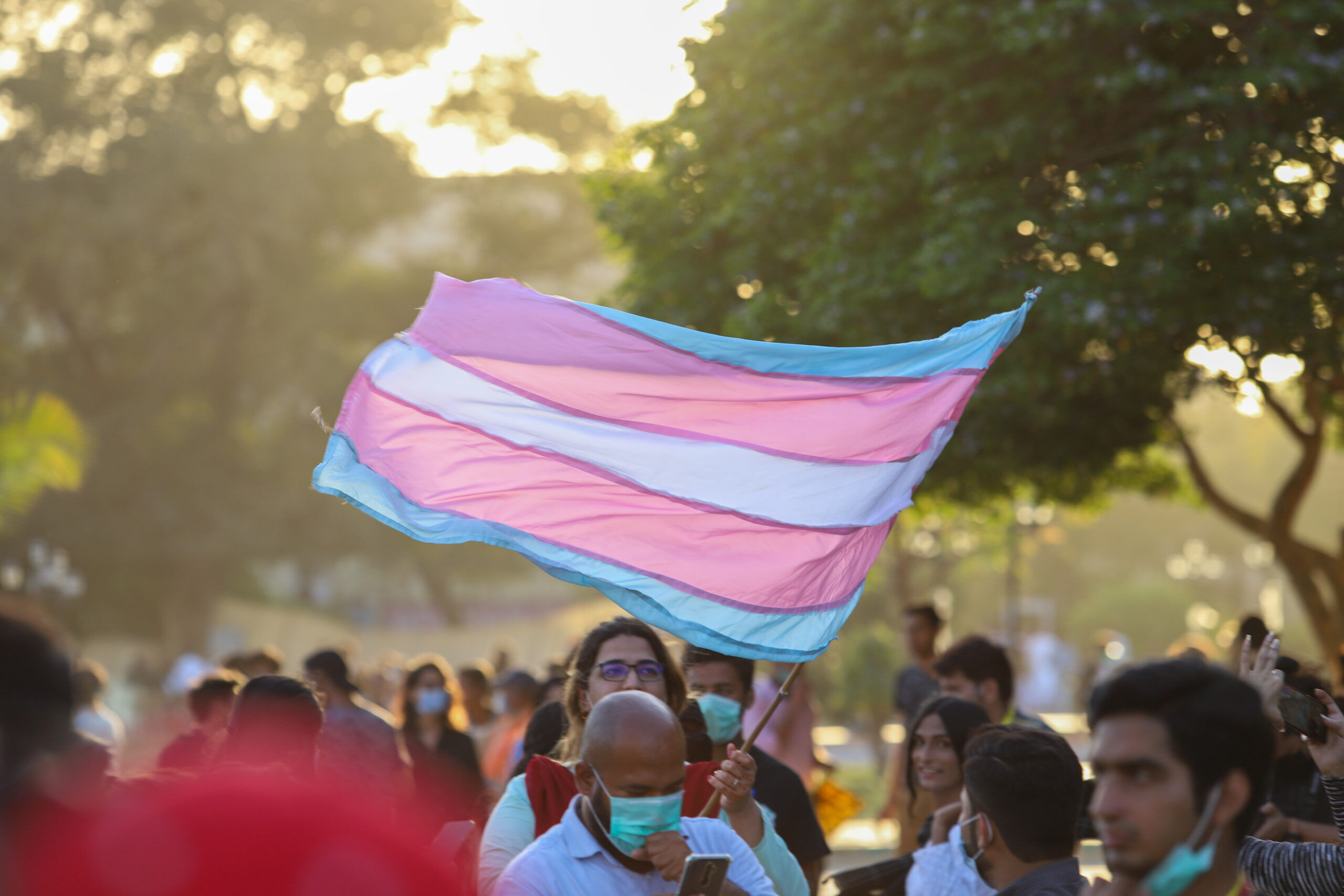On May 19, Pakistan’s Federal Shariat Court (FSC) struck down a number of provisions of the historic Transgender Persons (Protection of Rights) Act after declaring the statute to be “un-Islamic”.
Activists say the decision is “regressive” and fear the move will have significant repercussions for the country’s transgender community.
Related:
A song of revolution
My love is my love is my love. You cannot legislate away our pride.
The law, passed in May 2018 by Pakistan’s national assembly, was then seen as a progressive step toward the realization of transgender rights in otherwise conservative Pakistan. It gave transgender people legal status and outlawed harassment and discrimination toward them.
Global perspectives delivered right to your inbox
Our newsletter bridges borders to bring you LGBTQ+ news from around the world.
Established in 1980 during the government of military dictator President Muhammad Zia-ul-Haq, FSC has the constitutional mandate to analyze and decide whether laws adhere to Pakistan’s Islamic principles.
In its May 19 ruling, FSC said that a person cannot change gender based on “innermost feeling” or “self-perceived identity” and must adhere to their biological sex assigned at birth.
“The ruling of the Shariat Court is highly valued in Pakistan. This order will have dangerous implications for the transgender community,” Pakistani transgender activist Shahzadi Rai told LGBTQ Nation.
According to Rai, an appeal against FSC’s order will be filed in Pakistan’s Supreme Court soon.
“We will challenge this in the Supreme Court. We have already held a meeting with our lawyer and will approach the Supreme Court soon. It is bizarre that the FSC court cherry-picked a few instances of criminal activity from Western nations involving trans members and used them as a foundation to invalidate crucial legal provisions that were crucial to the rights of the transgender community,” Rai said, adding that the religious organizations in Pakistan were even against the term “transgender.”
“They only recognize two genders – male and female.”
The FSC ruled that the law makes it easier for “criminals in society to easily commit crimes like sexual molestation, sexual assault, and even rape against females in the disguise of a transgender woman,” adding that the term “transgender” as it is used in the law “creates confusion.”
Rai said FSC cited various examples of Western countries having issues with the trans community, including incidents in which trans women have been accused of raping and impregnating women, as a reason to strike down the provisions.
“The Shariat court’s role is to discuss religious issues, not to address what is going on in the West,” Rai said.
Women’s Collective Aurat March reacted to FSC’s order on Twitter: “Our heads should hang in shame and disgust at the Shariah Court’s attitudes towards the transgender community.”
Pakistani Human Rights lawyer Malik Osama told LGBTQ Nation that the provisions of the law were “very important” for Pakistan’s transgender community. “It gave them the right to choose their gender according to their own perception, and this could be done without any medical certificate.”
In 2012, Pakistan’s Supreme Court ordered equal rights for transgender people, including the right to inherit property and assets. Osama believes the recent order may affect the right to inheritance for transgender Pakistanis.
“Sections that have been struck down by the Sharia court will affect the right to gender self-determination, the right to get their gender changed via surgical intervention, and even right to inheritance may be affected as court has ruled that the gender determined at birth shall be considered for the purpose of calculating inheritance share,” he said.
According to the 2017 census, there are just over 10,000 transgender persons living in Pakistan. They are often shunned in the country. Usually, they make ends meet by begging, dancing and doing sex work.
Despite past laws guaranteeing them legal protections and rights, transgender people have consistently faced attacks. Some members of the community have even had to flee their homes.
The community found some acceptance in 2016, after a group of clerics declared marriage between transgender individuals was permissible in Islam and maintained trans folks have a right to be buried in Muslim graveyards.
London-based human rights body Amnesty International termed the FSC’s verdict a “blow to the rights of the already beleaguered group of transgender and gender-diverse people in Pakistan”
“Further, some of the observations made by the Court were based on presumptive scenarios rather than empirical evidence,” Rehab Mahamoor, research assistant at Amnesty International, said in a statement. “The denial of essential rights of transgender and gender diverse persons should not be guided by assumptions rooted in prejudice, fear and discrimination.”
Mahamoor further said that any steps taken by the government of Pakistan to deny transgender and gender-diverse people the right to gender identity was in contravention of their obligations under international human rights law, namely the International Covenant on Civil and Political Rights (ICCPR) and the Convention on the Elimination of All Forms of Discrimination against Women (CEDAW) to which they are a state party.
Meanwhile, the National Human Rights Commission of Pakistan (HRCP) said it was disappointed by the rolling back of trans rights.
“This will lead to further marginalisation & abuse of an already vulnerable community,” the organization said in a statement. “In denying trans persons the right to self-perceived gender identity, this move seeks the erasure of an entire demographic and its fundamental rights. Moreover, the ruling undermines the will of the Parliament.”
HRCP is hopeful that the Supreme Court of Pakistan will overturn this decision. “Parliament must not amend this act at any cost.”
Amnesty International also asked the government of Pakistan to take immediate and urgent steps to stop the reversal of these essential protections, without which, it says, “transgender and gender diverse people will be even more at risk of harassment, discrimination and violence.”
Osama said that even though the activists and various other organizations were planning to appeal the decision, the federal government should also appeal, as should parliament. Osama declared, “It is the collective will of parliament that has been struck down.”















